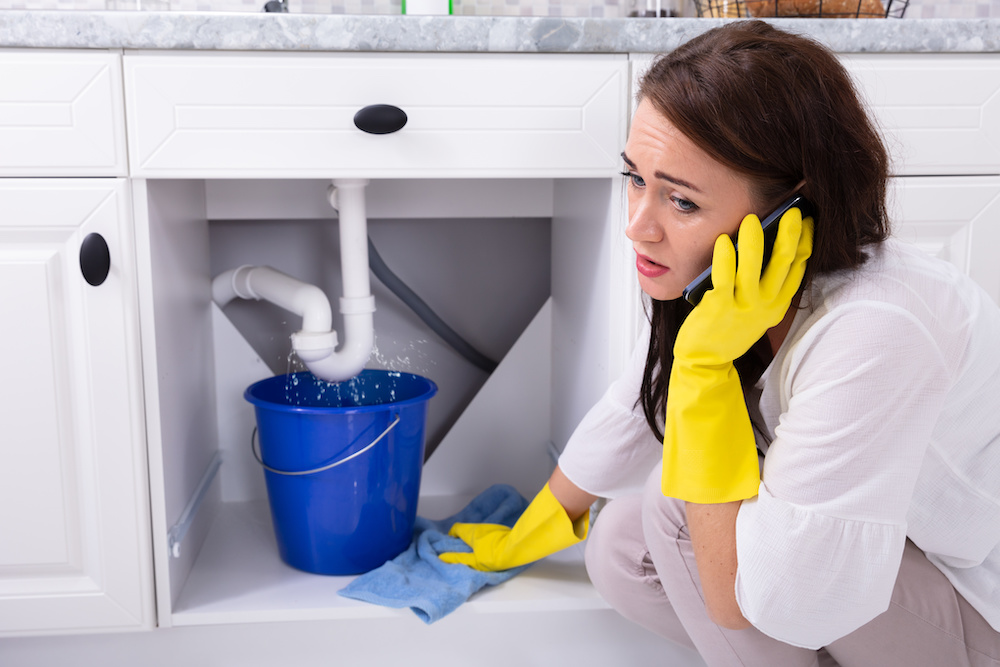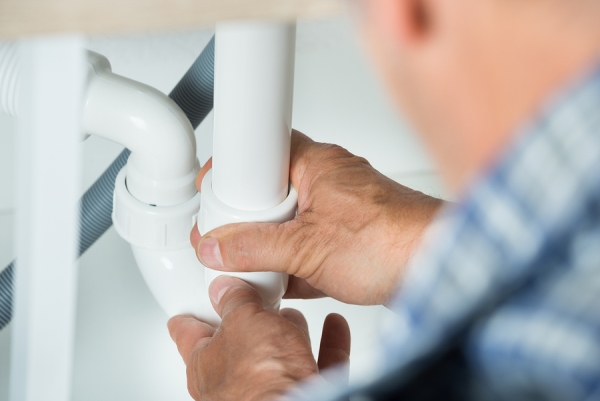Important Emergency Plumbing Fixes to Implement Until Professional Assistance Arrives
Important Emergency Plumbing Fixes to Implement Until Professional Assistance Arrives
Blog Article
The publisher is making a number of good pointers relating to Plumbing Emergencies: Tips on What To Do Before overall in this article underneath.

Pipes emergency situations can strike at any moment, triggering stress and anxiety and prospective damages to your home. Whether it's a ruptured pipeline, a clogged up drainpipe, or a leaking tap, understanding exactly how to manage the situation till a specialist plumbing professional gets here can conserve you from more difficulties. This write-up gives crucial emergency situation pipes ideas to assist you minimize damages and reclaim control throughout a pipes dilemma.
Switch off the Water
The very first step in any pipes emergency situation is to shut down the water. For local concerns, such as a dripping tap or commode, switch off the shutoff near the component. In the case of a major leak or burst pipe, locate your home's main water shut-off valve and transform it off immediately. Recognizing the area of these shutoffs ahead of time can save important time during an emergency situation.
Address Little Leaks with Temporary Solutions
Little leaks can promptly become significant troubles if left untreated. Use these short-lived repairs until specialist assistance arrives:
While these fixes aren't irreversible, they can assist reduce water loss and damage.
Unclog Drains Pipes Safely
A clogged drain can be an aggravating and unpleasant problem. Here's just how to tackle it:
If these techniques don't work, stay clear of utilizing excessive pressure, as it might worsen the blockage.
Take Care Of Overflowing Toilets
An overflowing commode can trigger instant disorder. Here's what you must do:
Shut down Your Water Heater
In certain emergencies, such as a ruptured pipe, it's a good idea to turn off your hot water heater. This prevents overheating or damages to the system when water quits flowing. Turn off the power supply to the hot water heater (electrical or gas) and let it cool down to avoid prospective threats.
Temporarily Stop a Burst Pipe
A burst pipe can cause substantial water damage in minutes. To mitigate the problem:
Call a professional plumbing right away to deal with the issue completely.
Deal With Frozen Pipeline Thoroughly
In chillier climates, frozen pipes are a common emergency. If you believe an icy pipeline:
Stop Further Damage
Taking quick activity to decrease damages can save you time and money in the long run. Below's exactly how:
. Have an Emergency Situation Plumbing Kit
Prepare a standard plumbing emergency kit to take care of small concerns successfully. Your set ought to include:
Having these devices accessible can make a significant difference in your capacity to handle emergencies.
Know When to Call a Specialist.
While quick fixes can aid briefly, certain plumbing concerns need immediate specialist attention. Call a plumber if:.
Immediately contacting a professional makes certain the issue is settled correctly and stops further problems.
Verdict.
Plumbing emergency situations can be frustrating, yet with the best expertise and tools, you can handle the scenario effectively until assistance gets here. By turning off the supply of water, attending to small leaks, and utilizing momentary solutions, you can reduce damages and maintain your home safe. Remember, these suggestions are momentary remedies; always consult a licensed plumbing to handle the root cause of the problem. Preparation and quick thinking are your best allies in any plumbing emergency.
Expert Tips for Emergency Plumbing Repairs
Plumbing emergencies can be incredibly stressful and inconvenient. Whether it’s a burst pipe, a clogged drain, or a leaky faucet, these common plumbing emergencies need immediate attention to prevent further damage to your home. But before you panic, it’s important to understand the basics of plumbing repairs and the steps you can take to address these emergencies. In this article, we will share some expert tips to help you navigate through these situations and minimize potential water damage.
Identifying Common Plumbing Emergencies
Leaky pipes and faucets Clogged drains and toilets Burst pipes Low water pressure Water heater problems Essential Tools for Plumbing Repairs
Plunger: Useful for unclogging toilets and drains Adjustable wrench: Needed for tightening or loosening nuts and bolts Pipe wrench: Ideal for gripping and turning pipes Tape measure: Necessary for accurate pipe measurements Plumber’s tape: Helps create watertight seals Understanding Emergency Plumbing Services
Emergency plumbing services are designed to provide immediate assistance for unexpected plumbing issues that can cause significant damage to your home, business, or health. These services are typically available 24/7 and are staffed by experienced plumbers who can quickly diagnose and repair a wide range of plumbing problems.
When a plumbing emergency strikes, time is of the essence. Whether it’s a burst pipe flooding your basement or a gas leak posing a serious risk, emergency plumbing services ensure that help is just a phone call away. These professionals are equipped with the tools and expertise to handle any situation, minimizing damage and restoring your plumbing system to proper working order.
What Constitutes a Plumbing Emergency?
Burst pipes or water supply lines: These can cause extensive water damage and need immediate repair to prevent flooding. Gas leaks or suspected gas leaks: Gas leaks are extremely dangerous and require prompt attention to avoid potential explosions or health hazards. Sewer backups or overflows: These can lead to unsanitary conditions and significant property damage. Clogged drains or toilets causing water to overflow: Overflowing water can damage floors, walls, and other structures. Leaks or water damage causing structural damage: Persistent leaks can weaken the structural integrity of your home or business. No hot water or heating: A lack of hot water can be more than an inconvenience, especially in colder months. Common Causes of Plumbing Emergencies
Aging or corroded pipes: Over time, pipes can deteriorate, leading to leaks or bursts. Improperly installed or maintained plumbing fixtures: Faulty installations or lack of maintenance can result in unexpected failures. Tree roots or other debris infiltrating your sewer line: Roots can grow into pipes, causing blockages and backups. Frozen pipes or water supply lines: In colder climates, pipes can freeze and burst, leading to significant water damage. High water pressure or sudden changes in water pressure: Excessive pressure can strain pipes and fixtures, causing them to fail. Natural disasters such as floods or earthquakes: These events can disrupt your plumbing system and cause severe damage. Steps to Minimize Water Damage
Locate the water shut-off valve: Knowing where the valve is can help you quickly cut off the water supply to the affected area. Turn off the water heater: If there’s a risk of water coming into contact with the heating element, make sure to turn off the water heater to avoid potential accidents. Open faucets and drain pipes: By opening faucets and drain pipes, you can relieve pressure and empty any standing water. Collect and contain water: Use towels, buckets, or bins to collect water and prevent it from spreading to other areas of your home. https://leecountyplumbingandwellservice.com/expert-tips-for-emergency-plumbing-repairs/

Do you like reading up on ? Write a comment further down. We'd be glad to listen to your reactions about this content. We are looking forward that you visit us again in the future. Do you know about somebody else who is interested by the topic? Do not hesitate to share it. We enjoy reading our article about Expert Tips for Emergency Plumbing Repairs.
Request An Estimate Report this page